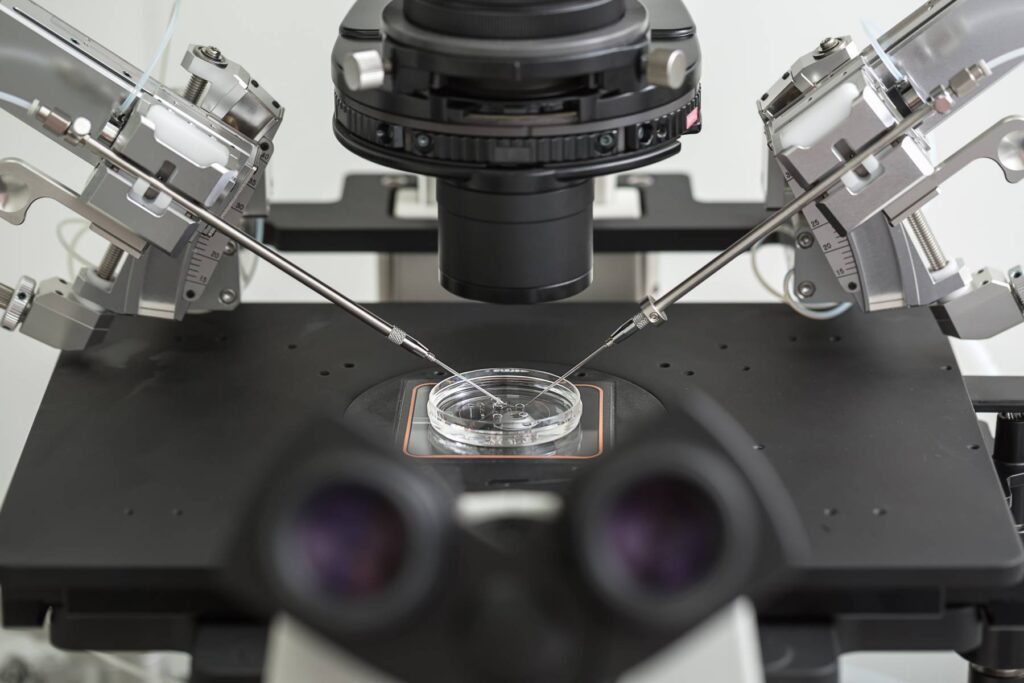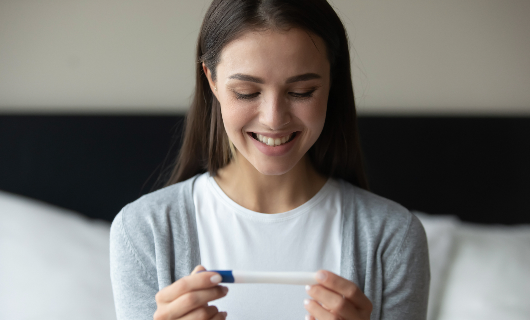IVF - In Vitro Fertilisation

IVF - In Vitro Fertilisation
IVF or In Vitro Fertilization occurs when the egg is in vitro fused with sperm. Conception occurs outside the human body, but the fertilized embryo has to be placed back into the uterus once the fertilization takes place.
Why its done?
The IVF is a novel technique to help couples conceive if non-invasive procedures such as fertility medicines and IUI are not successful.
This method used in the treatment of various fertility issues caused due to blocked fallopian tubes, ovulation disturbances, endometriosis, egg failure, sperm impairment, etc.

How do you Plan?
Effectively six months before the Procedure, IVF preparations may begin. One can start by following a healthy diet and lifestyle, reducing alcohol consumption and smoking, reducing canned and processed food and keeping an ideal BMI after exercise. It is advisable to manage stress, such as deep breathing and yoga. Better sleep and more sleep help to increase fertility. Taking food rich in vitamins can also improve the chances of conception. Just before therapy begins, the women are given oral therapy to optimize their risk of pregnancy. The IVF procedure for most people is not painful, although some patients may experience some discomfort and cramps.
What can you expect ?
IVF begins four to six weeks before the egg retrieval. The embryo is transferred about 3 to 5 days later, once fertilization occurs.
The following is step by step explanation of the entire cycle:
- Step One: Starting on Day 2, the patient will have to be subjected to regular daily injections and ultrasound scans to monitor follicle growth. The combination of tablets and injections can also provide an ovarian stimulation. Blood tests are also performed to monitor levels of the hormones. At the time of the ultrasound scan, the uterine lining shall be evaluated.
- Step Two: When the follicles reach the optimum size (18-20mm), as seen by the IVF specialist on the ultrasound scan, an injection called trigger is administered for maturation of the eggs
- Step Three: Egg retrieval is planned between 34 and 36 hours after the trigger injection has been administered.
- Step Four: The husband or partner must give a sample of the semen on the day of oocyte retrieval.
- Step Five: The semen sample and the eggs retrieved are processed and placed in a petri dish.
- Step Six: Fertilization and development of embryos is initiated
- Step Seven: Embryos, depending on their quality, can be cultivated up to 5 days in the laboratory.
- Step Eight: Transfer of the embryo may be performed any day between the second and fifth day after oocyte retrieval. The embryo is a blastocyst on the fifth day and blastocyst transfer may improve your pregnancy chances. Not more than two embryos are generally transferred but you can also choose a single elective embryo transfer.
- Step Nine: A blood test is carried out for the pregnancy two weeks after the date of the embryo transfer
Post-procedure/ results
The expectant mother is referred to a prenatal care obstetrician about 6-8 weeks after embryo transfer. If the result is not positive, a doctor can be consulted and a repetitive IVF cycle or a different method can be used to improve the chances of pregnancy.
What risks are there ?
When conducted by experienced doctors, IVF is a very safe procedure. However, you have to be aware of some risks.
- Pregnancy Ectopic : Sometimes IVF process places the embryo outside the uterus. This is mainly due to abnormal fallopian tubes and may result in abdominal pain, vaginal bleeding, etc. Please contact your IVF specialist immediately in the event of severe abdominal pain.
- Reaction to drugs: Sometimes medicines that are injectable can cause hot flushes, insomnia, and nausea. Ovarian Hyperstimulation Syndrome (OHSS) may also be caused by swollen ovaries that cause pain.
- Multiple Pregnancy: In some situations, where more than one embryo is grown in the uterus, twin, triplet or quadruplet pregnancy may occur.
Start your Parenthood Journey with Goodwill IVF
We have highly experienced team of fertility experts, including obstetricians and gynecologists, pediatricians, embryologists, andrologists, ultrasonologists, counselors, nurses, and other healthcare professionals always dedicated to help you.
Goodwill IVF
- A Unit of Neha Hospital, Changuvetty Kundu, Kottakkal, Kerala 676503
- Phone: +91 80897 13201
- Email: goodwillivf@gmail.com